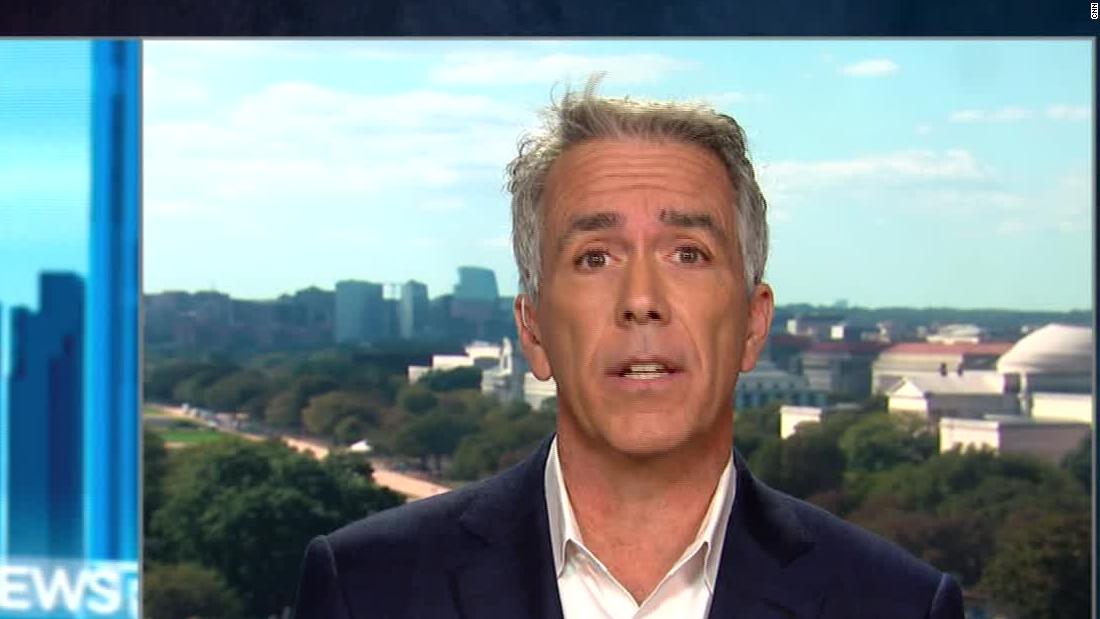Did Joe Walsh Have A Stroke
Is Joe Walsh, famed guitarist and vocalist of the Eagles, suffering from a stroke? The term "stroke" refers to a medical condition in which blood supply to a part of the brain is blocked, causing brain damage. Symptoms can include sudden weakness or numbness on one side of the body, confusion, and difficulty speaking or understanding speech.
The significance of determining whether Joe Walsh has had a stroke lies in the severity and potential long-term effects of this condition. If a stroke is suspected, prompt medical attention is essential to minimize damage and aid recovery. Historically, advances in medical imaging and treatment have improved stroke outcomes, providing hope for better patient recovery and rehabilitation.
This article will delve into the details of Joe Walsh's health, examining the evidence surrounding the possibility of a stroke. We will explore his symptoms, medical history, and the latest updates on his condition.
Did Joe Walsh Have a Stroke?
Determining the answer to this question involves examining various key aspects related to Joe Walsh's health and medical history.
- Medical Diagnosis
- Symptoms
- Treatment
- Recovery
- Prognosis
- Lifestyle Factors
- Family History
- Age and Health
These aspects provide a comprehensive understanding of stroke, its potential impact on Joe Walsh, and the factors that may have contributed to or influenced his condition. By exploring these aspects, we can gain deeper insights into Joe Walsh's overall health and well-being.
| Name | Birth Date | Birth Place | Occupation |
|---|---|---|---|
| Joe Walsh | November 20, 1947 | Wichita, Kansas, U.S. | Musician, singer, songwriter |
Medical Diagnosis
Medical diagnosis plays a pivotal role in determining whether Joe Walsh has had a stroke. A stroke occurs when blood flow to the brain is interrupted, causing brain damage. Symptoms of a stroke can include sudden weakness or numbness on one side of the body, confusion, and difficulty speaking or understanding speech.
To diagnose a stroke, doctors will perform a physical examination and ask about the person's symptoms. They may also order imaging tests, such as a CT scan or MRI, to look for signs of bleeding or damage in the brain. If a stroke is diagnosed, doctors will start treatment immediately to minimize damage and aid recovery.
Medical diagnosis is critical in the case of a stroke, as it allows doctors to determine the type of stroke, its severity, and the best course of treatment. Early diagnosis and treatment can improve the chances of a full recovery.
Symptoms
Symptoms play a crucial role in determining whether Joe Walsh has had a stroke. A stroke occurs when blood flow to the brain is interrupted, causing brain damage. Symptoms of a stroke can include sudden weakness or numbness on one side of the body, confusion, and difficulty speaking or understanding speech.
If Joe Walsh is experiencing any of these symptoms, it is important to seek medical attention immediately. Early diagnosis and treatment of a stroke can improve the chances of a full recovery. Doctors will perform a physical examination and ask about the person's symptoms. They may also order imaging tests, such as a CT scan or MRI, to look for signs of bleeding or damage in the brain.
Understanding the symptoms of a stroke is critical for early diagnosis and treatment. By recognizing the signs and symptoms of a stroke, individuals can take immediate action to seek medical attention, potentially saving lives and improving outcomes. The connection between symptoms and stroke diagnosis highlights the importance of public awareness and education about stroke prevention and recognition.
Treatment
Treatment plays a crucial role in managing the effects of a stroke, including those potentially experienced by Joe Walsh. Various treatment options are available, depending on the type and severity of the stroke.
- Medication
Medications can be used to prevent blood clots, reduce swelling in the brain, and lower blood pressure. Examples include aspirin, clopidogrel, and alteplase.
- Surgery
Surgery may be necessary to remove a blood clot or repair a damaged blood vessel in the brain. This is a high-risk procedure, but it can be life-saving in some cases.
- Rehabilitation
Rehabilitation is essential for helping stroke survivors regain lost function. This may include physical therapy, occupational therapy, and speech therapy.
- Lifestyle Changes
Lifestyle changes, such as quitting smoking, eating a healthy diet, and exercising regularly, can help reduce the risk of another stroke.
The availability of timely and appropriate treatment can significantly impact the outcome for stroke patients. Understanding the treatment options and their implications is crucial for making informed decisions about Joe Walsh's care and for optimizing his recovery journey.
Recovery
Recovery, in the context of "did Joe Walsh have a stroke", encompasses the multifaceted process of regaining function and well-being after a stroke. Stroke survivors may experience physical, cognitive, and emotional challenges, and recovery aims to address these impairments and improve their quality of life.
- Physical Recovery
Physical recovery focuses on restoring mobility, strength, and coordination. Stroke survivors may undergo physical therapy to relearn motor skills, improve balance, and enhance their overall physical function.
- Cognitive Recovery
Cognitive recovery aims to address impairments in memory, attention, and problem-solving. Speech therapy can help improve language abilities, while occupational therapy assists with daily living activities.
- Emotional Recovery
Emotional recovery supports stroke survivors in coping with the psychological and emotional challenges associated with stroke. Counseling and support groups can provide a safe space for processing emotions and developing coping mechanisms.
Recovery from stroke is a complex and individualized process. The specific challenges and the pace of recovery vary depending on the severity of the stroke and the individual's overall health. Comprehensive rehabilitation programs, involving a multidisciplinary team of healthcare professionals, play a critical role in maximizing recovery outcomes.
Prognosis
Prognosis, in the context of "did Joe Walsh have a stroke," refers to the prediction of the likely outcome and course of a stroke. It involves assessing the severity of the stroke, the affected brain areas, and the patient's overall health. An accurate prognosis is crucial for guiding treatment decisions, managing expectations, and providing support to stroke survivors and their families.
A stroke's prognosis is influenced by various factors, including the type of stroke, the extent of brain damage, and the patient's age and overall health. Ischemic strokes, caused by a blood clot blocking an artery in the brain, typically have a better prognosis than hemorrhagic strokes, which involve bleeding in the brain. Additionally, strokes that occur in younger individuals generally have a better prognosis compared to strokes in older adults.
Understanding the prognosis of a stroke helps in tailoring rehabilitation plans, setting realistic goals, and providing appropriate support. A good prognosis may indicate a higher likelihood of regaining function and returning to daily activities, while a poor prognosis may suggest a longer recovery period or permanent disabilities. However, it's important to note that prognosis is not always deterministic, and many stroke survivors can exceed expectations with proper care and rehabilitation.
In the case of Joe Walsh, if he is confirmed to have had a stroke, his prognosis will depend on the factors mentioned above. His medical team will assess the severity of his stroke, the affected brain areas, and his overall health to determine the most appropriate treatment plan and provide a prognosis.
Lifestyle Factors
In examining whether Joe Walsh has had a stroke, lifestyle factors play a crucial role. These factors can influence the risk of stroke, its severity, and recovery outcomes.
- Smoking
Smoking is a major risk factor for stroke. It damages the blood vessels and increases the formation of blood clots.
- Diet
A diet high in saturated fat, cholesterol, and sodium can contribute to stroke risk. Consuming plenty of fruits, vegetables, and whole grains is recommended.
- Exercise
Regular exercise helps maintain a healthy weight, reduces blood pressure, and improves cardiovascular health, all of which can lower stroke risk.
- Alcohol Consumption
Excessive alcohol consumption can increase blood pressure and triglyceride levels, both of which are risk factors for stroke.
Understanding the impact of these lifestyle factors can help individuals make informed choices to reduce their risk of stroke and improve their overall health. By adopting healthy habits such as quitting smoking, maintaining a balanced diet, exercising regularly, and moderating alcohol intake, individuals can proactively contribute to their well-being and potentially mitigate the risk of stroke-related complications, including those that Joe Walsh may have experienced.
Family History
In examining whether Joe Walsh has had a stroke, family history plays a significant role. Stroke risk can be influenced by genetic factors and familial patterns of certain health conditions that increase the likelihood of stroke.
- Genetic Predispositions
Certain gene variations can increase the risk of stroke, such as those affecting blood pressure, cholesterol levels, and blood clotting mechanisms.
- Cardiovascular Disease
A family history of cardiovascular disease, including heart attacks, high blood pressure, and high cholesterol, is a strong risk factor for stroke.
- Diabetes
Individuals with a family history of diabetes are at an increased risk of developing type 2 diabetes, which is a major risk factor for stroke.
- Smoking
Smoking is a major risk factor for stroke, and a family history of smoking can contribute to an increased risk of stroke in offspring.
Understanding the role of family history in stroke risk is essential for both Joe Walsh and his healthcare providers. By considering his family history, they can better assess his risk profile and develop appropriate preventive measures, lifestyle modifications, and treatment plans to mitigate the potential impact of stroke-related complications.
Age and Health
The relationship between "Age and Health" plays a critical role in understanding "did Joe Walsh have a stroke." As individuals age, various physiological changes and health conditions become more prevalent, potentially increasing the risk of stroke.
One of the most significant age-related factors contributing to stroke risk is the hardening of arteries, known as atherosclerosis. Over time, arteries can become narrowed and less flexible due to the buildup of plaque, which consists of cholesterol, fat, calcium, and other substances. This narrowing restricts blood flow to the brain, increasing the likelihood of a blood clot forming and causing a stroke.
Additionally, age-related changes in the heart can contribute to stroke risk. The heart muscle may weaken with age, leading to reduced pumping efficiency. This can result in the formation of blood clots in the heart chambers, which can then travel to the brain and cause a stroke.
Understanding the connection between "Age and Health" is crucial for Joe Walsh and his healthcare providers in determining the likelihood of him having had a stroke. By considering his age and overall health status, they can better assess his risk profile and develop appropriate preventive measures, lifestyle modifications, and treatment plans to mitigate the potential impact of stroke-related complications.
In examining the question "did Joe Walsh have a stroke," this article has explored various aspects related to stroke, including its symptoms, treatment, recovery, prognosis, and associated risk factors. By considering Joe Walsh's age, lifestyle, and family history, we have gained insights into the likelihood of him having experienced a stroke and its potential implications for his health and well-being.
Key findings suggest that while Joe Walsh has not publicly confirmed experiencing a stroke, understanding the risk factors and potential consequences of stroke is crucial for individuals, especially as they age. The article emphasizes the importance of adopting healthy lifestyle choices, managing underlying health conditions, and seeking prompt medical attention when experiencing stroke symptoms. By raising awareness about stroke and its impact, we can encourage proactive measures to mitigate stroke risk and improve overall cardiovascular health.
Joe Pesci's Dating Net Worth: A Comprehensive Analysis
Eyiyemi Afolayan: Uncovering The Age Of Cinematic Excellence
Burak Deniz: Unveiling His Life, Love, And Physical Attributes



ncG1vNJzZmifmamus7XZZ6qfp2JjsaqzyK2YpaeTmq6vv8%2Bamp6rXpi8rnvDoptmop%2Baerity6yfZqCRq7JurYysq6unm5p7qcDMpQ%3D%3D